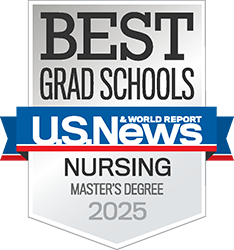The Nurse Anesthesia Program offers the 112 credit hour, 9 semester curriculum leading to a Doctor of Nursing Practice degree from The University of Texas Health Science Center at Houston School of Nursing (UTHealth).
The Council on Accreditation of Nurse Anesthesia Education Programs (COA) accredits the nurse anesthesia program. Graduates are qualified to take the National Certification Examination (NCE) of Nurse Anesthetists, which is administered by the National Board on Certification and Recertification of Nurse Anesthetists (NBCRNA). A full spectrum of clinical experiences in anesthesia practice is provided at several academic and community healthcare facilities. The clinical experiences require travel around the Houston Metropolitan area. The Nurse Anesthesia faculty assigns students to COA approved clinical sites.
The curriculum of the BSN-DNP Nurse Anesthesia Program is designed to provide the student with knowledge, skills and abilities relating to the provision of professional nurse anesthesia care while incorporating the COA doctoral competencies and AACN DNP Essentials.
The goal of the BSN-DNP Nurse Anesthesia program is the development of safe, competent nurse anesthetists who are also able to:
- integrate evidence into clinical practice and care delivery,
- collaborate effectively in healthcare teams and with patients,
- provide individualized, patient-centered and culturally competent care,
- advocate for patients and the profession,
- lead healthcare change, and
- engage in life-long learning.
Upon completion of the BSN-DNP Nurse Anesthesia program of study, the student should be able to:
- Collaborate within interprofessional teams to optimize the delivery of care, patient outcomes and health care quality.
- Formulate and implement safe, efficient and evidence -based anesthetic plans of care for diverse patient populations across the lifespan while adjusting for comorbid conditions and surgical procedures.
- Evaluate and translate evidence into clinical practice improvement initiatives that potentially impact clinical processes, care costs, safety, or quality.
- Evaluate physiologic responses to anesthesia and surgery while implementing evidence-based interventions to maintain homeostasis.
- Demonstrate mastery of biophysical sciences, anesthetic principles of practice and clinical technical skills that will promote safe, efficient functioning in the nurse anesthetist role.



